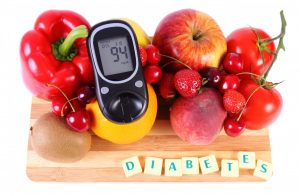 Contrary to popular belief, diabetes is not a one-size-fits-all disease. Because the risk factors, signs and treatments can vary significantly between type 1, type 2, and gestational diabetes, the aging care specialists at Advanced Home Health Care offer the following breakdown to make it easier to understand the differences between all types of diabetes.
Contrary to popular belief, diabetes is not a one-size-fits-all disease. Because the risk factors, signs and treatments can vary significantly between type 1, type 2, and gestational diabetes, the aging care specialists at Advanced Home Health Care offer the following breakdown to make it easier to understand the differences between all types of diabetes.
Gestational Diabetes
Gestational diabetes, as its name implies, affects only pregnant women, usually presenting at about the 24th week of pregnancy. Gestational diabetes affects both mom and baby, and is identified in as many as 9% of pregnancies.
Type 1 Diabetes
Often diagnosed in children and teenagers, and previously known as juvenile diabetes, type 1 diabetes occurs when the body’s natural immunity destroys the insulin-producing cells of the pancreas. Without these cells, sugar from the food an individual consumes cannot be removed out of the blood and starts to build up. When sugar develops within the blood rather than in the body’s cells, the cells start to starve for nutrition, causing other systems within the person’s body to work to provide energy to keep the body running. As indicated by the American Diabetes Association, just 5% of those with diabetes actually have this type of diabetes.
Symptoms of type 1 diabetes include:
- Increased thirst
- Enhanced hunger
- Dry mouth
- Nausea with occasional vomiting
- Abdominal pain
- Frequent urination
- Unexplained weight loss, despite the fact that you eat and feel hungry
- Fatigue
- Blurred vision
- Frequent skin or urinary tract infections
Type 2 Diabetes
Type 2 diabetes is the most prevalent type of the disease, impacting 90-95% of the people with diabetes. In contrast to individuals with type 1, those with type 2 diabetes produce insulin; but, their pancreas either doesn’t produce adequate amounts or the body cannot properly utilize the insulin that is made. This additionally causes sugar to develop in the blood instead of supplying nutrients to the body’s cells.
Symptoms of type 2 diabetes include:
- Increased thirst
- Heightened hunger
- Dry mouth
- Nausea with occasional vomiting
- Numbness or tingling in the hands and feet
- Frequent urination
- Unexplained weight loss, even though you eat and feel hungry
- Tiredness
- Blurred vision
- Frequent skin or urinary tract infections
Understanding the different types of diabetes can help family caregivers provide better care to their loved ones. But, diabetes management can be complicated, particularly for older adults with co-existing medical conditions. Partnering with an expert senior in-home care agency, like Advanced Home Health Care, can reduce the worries and frustrations surrounding diabetes care, providing as much or as little assistance as necessary. We start all services by putting together a personalized plan of care, and update the plan ongoing as individual requirements change. We welcome you to contact us at 800.791.7785 to learn more about our Burlington, Iowa home care services and the surrounding communities we serve.

